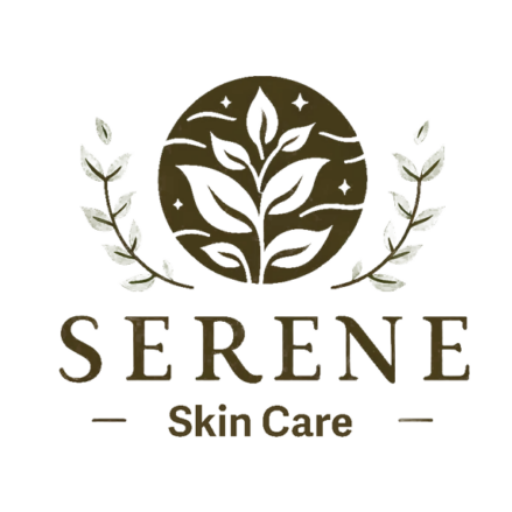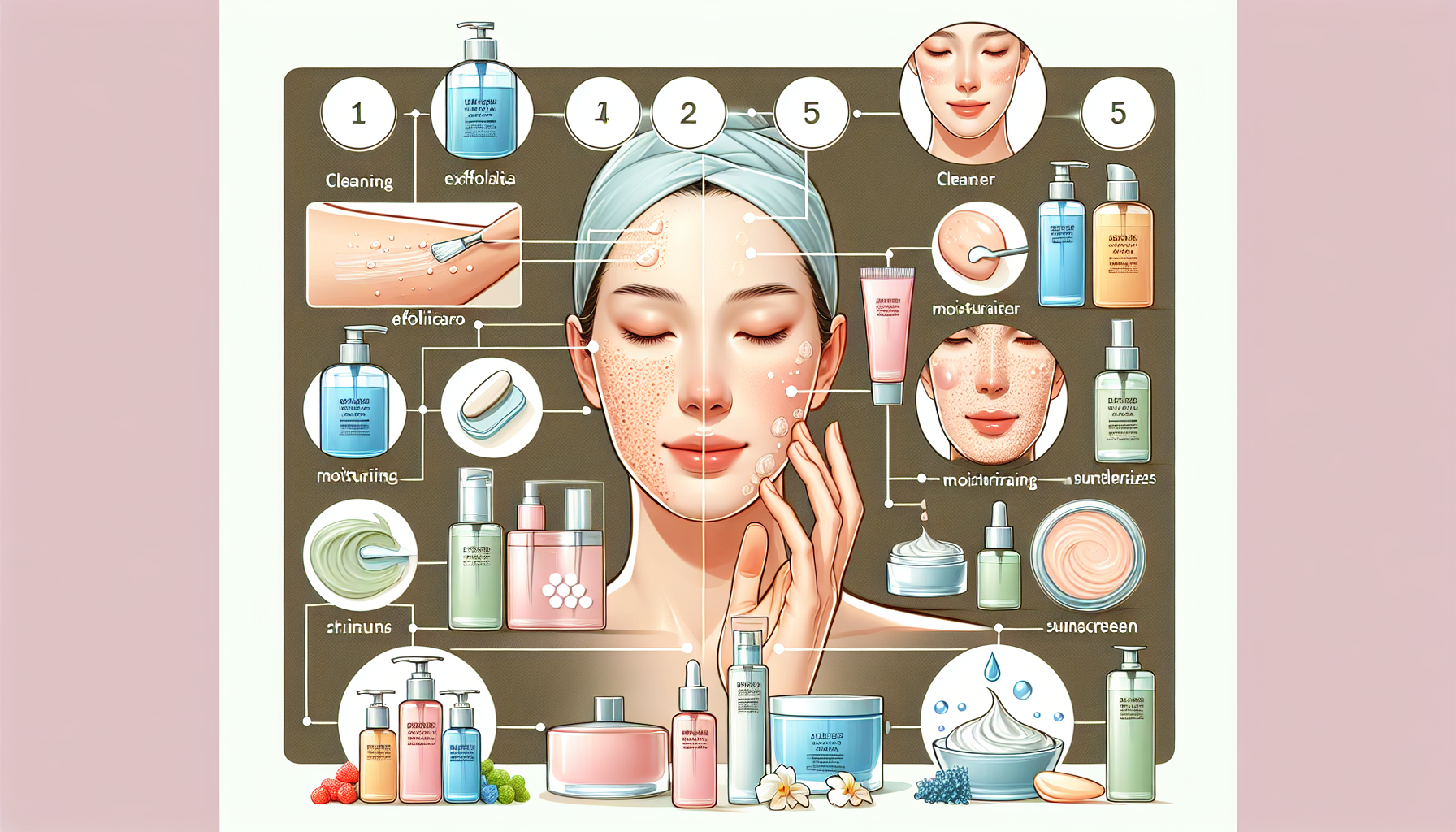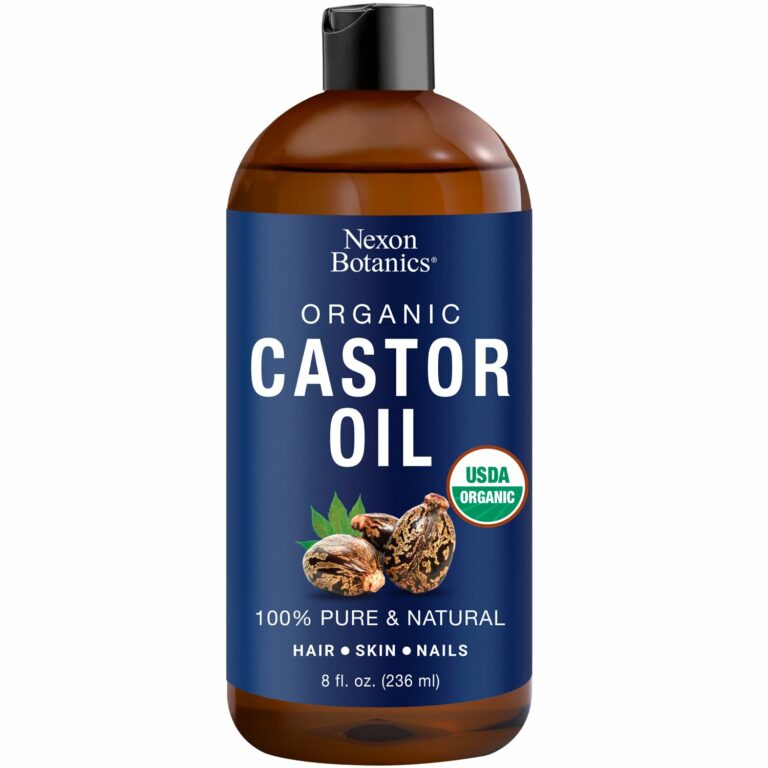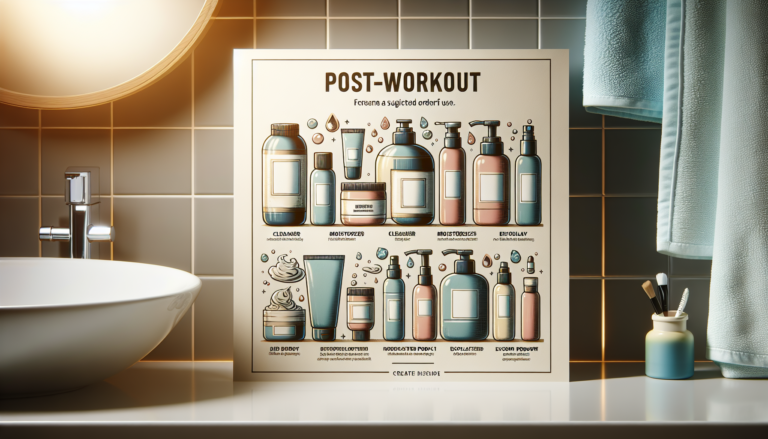Are you ready to unlock the secrets to a flawless complexion? Look no further, as this article will serve as your ultimate guide to creating a skin care routine that will leave your skin glowing and radiant. Whether you’re a skin care novice or a seasoned enthusiast, we’ve got you covered with all the essential tips and tricks you need to know. From understanding your skin type to selecting the right products for your specific needs, get ready to embark on a journey towards a healthier, happier complexion. So, grab your favorite moisturizer and let’s dive into the world of skin care routines!

The Importance of a Skin Care Routine
Taking care of your skin should be a top priority in your self-care routine. A skin care routine plays a vital role in maintaining healthy, radiant skin and preventing various skin concerns. By implementing a consistent skin care routine, you can achieve a glowing complexion, reduce the signs of aging, and promote overall skin wellness.
Understanding the Role of a Skin Care Routine
A skin care routine involves a series of steps and products aimed at addressing specific skin concerns and maintaining the overall health of your skin. It is a regimen that should be followed diligently to ensure the best possible results. Consistency is key when it comes to a skin care routine, as regular and proper maintenance yields the best outcomes.
Benefits of Maintaining a Regular Skin Care Routine
By establishing a regular skin care routine, you can enjoy a multitude of benefits. Firstly, a consistent routine helps to keep your skin clean and clear from dirt, impurities, and buildup, preventing clogged pores and breakouts. It also aids in regulating oil production, ensuring that your skin remains balanced and neither too oily nor too dry.
Furthermore, a skin care routine promotes skin hydration, which is essential for maintaining a youthful appearance and preventing dryness and dullness. It can also help to minimize the appearance of fine lines and wrinkles, keeping your skin looking smooth and youthful. Lastly, a well-maintained skin care routine contributes to an even skin tone, fading hyperpigmentation and reducing the visibility of dark spots.
Effects of Neglecting a Skin Care Routine
Neglecting a skin care routine can have detrimental effects on the health and appearance of your skin. Without regular cleansing, toning, and moisturizing, your skin becomes susceptible to the buildup of impurities, leading to clogged pores, breakouts, and dullness. Neglecting proper hydration can result in dryness, flakiness, and an uneven skin texture.
Moreover, without the necessary sun protection, your skin is exposed to harmful UV rays, increasing the risk of sun damage, premature aging, and even skin cancer. Lack of targeted treatments and eye care can result in unresolved skin concerns and the development of fine lines and wrinkles around the delicate eye area.
Now that you understand the importance of a skin care routine, let’s delve into the specifics of creating a personalized routine tailored to your skin type.
Identifying Your Skin Type
Determining your skin type is the first step in developing an effective skin care routine. Each skin type requires different products and treatments to address specific concerns. Here are four common skin types and the associated concerns:
Differentiating between Dry, Oily, Combination, and Sensitive Skin
- Dry Skin: Dry skin often feels tight, rough, and lacks natural moisture. It is prone to flakiness, redness, and can easily become irritated.
- Oily Skin: Oily skin appears shiny, especially in the T-zone (forehead, nose, and chin). It is prone to acne, blackheads, and excessive oil production.
- Combination Skin: Combination skin has a mix of oily and dry areas. Typically, the T-zone is oilier, while the cheeks and other areas may be drier.
- Sensitive Skin: Sensitive skin is easily irritated, reactive to certain products or ingredients, and prone to redness, itchiness, and inflammation.
Understanding your skin type allows you to choose the most suitable products and treatments, ensuring optimal results and minimizing potential skin issues.
Cleansing
Proper cleansing is the foundation of any skin care routine. It helps to remove dirt, oil, makeup, and impurities, allowing your skin to breathe and preventing pore congestion. Here’s how to cleanse effectively:
Choosing the Right Cleanser for Your Skin Type
Selecting the right cleanser is crucial in maintaining the balance of your skin. For dry skin, opt for gentle, hydrating cleansers that don’t strip away natural oils. Oily skin benefits from foaming or gel-based cleansers that remove excess oil without causing dryness. Combination skin can use a variety of cleansers, adjusting accordingly to different areas. Sensitive skin requires mild, hypoallergenic cleansers without fragrances or harsh ingredients.
Step-by-Step Guide to Effective Cleansing
- Start by wetting your face with lukewarm water.
- Apply a dime-sized amount of cleanser to your fingertips or a cleansing brush.
- Gently massage the cleanser onto your skin using circular motions, focusing on areas prone to congestion.
- Rinse thoroughly with lukewarm water, making sure all traces of cleanser are removed.
- Pat your skin dry with a clean towel, avoiding any harsh rubbing or pulling.
By cleansing your skin properly, you facilitate better absorption of subsequent products and maintain a clean, healthy complexion.
Toning and Exfoliation
Toning and exfoliation are vital steps in your skin care routine that help to enhance the effectiveness of other products and promote overall skin health.
Understanding the Purpose of Toning in a Skin Care Routine
Toning is a step often overlooked but essential in achieving balanced skin. It helps to remove any remaining impurities and residue, rebalances the skin’s pH, and prepares it for better absorption of moisturizers and treatments.
Choosing the Appropriate Toner for Your Skin
When selecting a toner, consider your skin’s specific needs. For dry or sensitive skin, opt for alcohol-free and hydrating toners that soothe and restore moisture. Oily or acne-prone skin benefits from toners containing Salicylic Acid or witch hazel to control oil production and reduce blemishes.
The Benefits of Regular Exfoliation
Exfoliating your skin removes dead skin cells, revealing a fresh, radiant complexion. It helps to improve skin texture, unclog pores, and reduce the appearance of fine lines and wrinkles. Regular exfoliation also enhances the absorption of other skin care products, allowing them to penetrate deeper into the skin.
Different Methods of Exfoliation
Exfoliation can be achieved through physical or chemical methods. Physical exfoliation involves using scrubs or brushes to physically remove dead skin cells. Chemical exfoliation utilizes ingredients like AHAs (Alpha Hydroxy Acids) or BHAs (Beta Hydroxy Acids) to dissolve dead skin cells and promote cellular turnover. Choose a method that suits your skin type and sensitivity, and exfoliate no more than twice a week to avoid over-exfoliation.
Moisturizing and Hydrating
Moisturizing and hydrating your skin are essential steps in any skin care routine as they help to maintain the skin’s moisture barrier and prevent moisture loss.
Why Moisturizing is Essential for All Skin Types
Moisturizing is essential for all skin types as it replenishes lost moisture, nourishes the skin, and creates a protective barrier. It helps to prevent dryness, soothes skin irritation, and improves the overall texture and appearance of the skin.
Selecting the Right Moisturizer for Your Skin
Choosing the right moisturizer depends on your skin type and specific concerns. Dry skin requires rich, creamy moisturizers with ingredients like hyaluronic acid or ceramides to deeply hydrate and lock in moisture. Oily skin benefits from lightweight, non-comedogenic moisturizers that balance oil production. Combination skin can use different moisturizers for different areas, tailoring to individual needs. Sensitive skin benefits from fragrance-free, hypoallergenic moisturizers that calm and soothe.
The Importance of Hydration in a Skin Care Routine
Hydration is vital for maintaining healthy skin as it keeps the skin plump, supple, and functioning optimally. Hydrated skin appears more youthful, with fewer visible wrinkles and fine lines. It also helps to regulate oil production, preventing excess oiliness or dryness.
Incorporating Hydrating Products into Your Routine
In addition to moisturizers, incorporating hydrating products like serums or essences can boost hydration levels in your skin care routine. Look for products containing hyaluronic acid or glycerin, which attract and retain moisture, leaving your skin hydrated and radiant.
Targeted Treatments
Targeted treatments in your skin care routine address specific skin concerns and provide specialized care to effectively improve your skin’s condition.
Understanding the Role of Targeted Treatments
Targeted treatments are formulated to address specific concerns such as acne, hyperpigmentation, fine lines, or dark circles. They provide concentrated ingredients and work in synergy with your routine to deliver exceptional results.
Identifying Specific Skin Concerns to be Addressed
Identify your specific skin concerns to choose the appropriate treatment products. Whether it’s acne, uneven skin tone, or aging skin, there is a range of treatments available to target and resolve those concerns effectively.
Choosing the Appropriate Treatment Products
When selecting treatment products, consider the active ingredients and their compatibility with your skin type. Consult a dermatologist or skincare professional for personalized advice, especially when dealing with more complex concerns requiring advanced treatments.
Tips for Incorporating Treatments Effectively
To incorporate treatments effectively, start by introducing one treatment at a time into your routine, allowing your skin to adjust. Use them as directed and apply them after cleansing and toning. Follow up with moisturizers to lock in the active ingredients. Consistency is key, and patience is necessary to see visible improvements.
Sun Protection
Sun protection is a crucial aspect of any skin care routine to safeguard your skin from harmful UV rays and prevent sun damage.
The Criticality of Sun Protection in a Skin Care Routine
Sun protection is vital because exposure to the sun’s UV rays can lead to premature aging, sunburn, dark spots, and even skin cancer. Protecting your skin from harmful UV radiation is essential for maintaining its health and preventing further damage.
Different Types of Sunscreens and Their Benefits
There are two main types of sunscreen: physical and chemical. Physical sunscreens work as a physical barrier, reflecting UV rays off the skin. Chemical sunscreens, on the other hand, absorb UV rays and convert them into heat. Both types provide protection, so select one that suits your preferences and skin sensitivity.
How to Properly Apply Sunscreen
To ensure optimal sun protection, apply sunscreen generously to all exposed areas, including your face, neck, and body. Use a broad-spectrum sunscreen with a minimum SPF of 30 and reapply every two hours or after swimming or sweating excessively. Don’t forget to protect your lips with a lip balm containing SPF.
Other Sun Protection Measures
In addition to sunscreen, adopting other protective measures can further safeguard your skin. Seek shade during peak sun hours, wear protective clothing, including hats and sunglasses, and avoid tanning beds or prolonged sun exposure.
Eye Care
The delicate eye area requires specialized care to address specific concerns and maintain a youthful appearance.
The Importance of Providing Special Care to the Delicate Eye Area
The skin around the eyes is thinner and more fragile, making it more prone to fine lines, wrinkles, puffiness, and dark circles. Providing special care to this area is crucial for preserving its youthful appearance and preventing signs of aging.
Choosing Eye Care Products Suited for Your Needs
Eye care products come in various forms: creams, serums, gels, or masks. Look for products that target your specific concerns, such as anti-aging ingredients for fine lines or caffeine-infused products for reducing puffiness and dark circles. Opt for fragrance-free and ophthalmologist-tested formulations, especially if you have sensitive eyes.
Effective Techniques for Applying Eye Cream
When applying eye cream, use your ring finger or the pad of your ring finger for gentle pressure. Dot a small amount of eye cream along the orbital bone, avoiding direct contact with your eyes. Gently pat the product in using light, tapping motions until fully absorbed. Avoid tugging or pulling at the delicate skin.
Lifestyle Factors
Your lifestyle choices have a significant impact on the health and appearance of your skin. Incorporating healthy habits into your routine can enhance your skin’s overall well-being.
How Lifestyle Choices Affect Skin Health
Diet, hydration, stress levels, and sleep patterns all play a role in the health of your skin. Poor nutrition, inadequate hydration, heightened stress levels, and lack of sleep can contribute to skin issues such as acne, dullness, and premature aging.
The Impact of Diet, Hydration, Stress, and Sleep on the Skin
A balanced diet rich in fruits, vegetables, and nutrients can nourish your skin and promote a healthy complexion. Staying hydrated by drinking an adequate amount of water helps to maintain skin elasticity and flush out toxins. Managing stress through practices like meditation or exercise can minimize the impact on your skin. Quality sleep allows your skin to regenerate and repair, leading to a more radiant complexion.
Incorporating Healthy Habits into Your Routine
To improve your skin health, prioritize a well-rounded lifestyle. Eat a nutritious diet, drink plenty of water, manage stress effectively, and aim for seven to eight hours of quality sleep each night. Remember, a holistic approach to skincare goes beyond just topical products.
Routine Adjustment and Maintenance
Evaluating and adjusting your skin care routine is essential to continually meet your skin’s evolving needs and maintain optimal results.
Evaluating the Effectiveness of Your Current Routine
Regularly assess the effectiveness of your skin care routine by observing changes in your skin’s condition. Pay attention to improvements, concerns that linger, or new issues that arise. Self-reflection allows you to identify areas that may require adjustment.
Signs That Indicate the Need for Adjustments
Signs that indicate the need for adjustments in your routine include persistent breakouts, excessive dryness or oiliness, increased sensitivity, or lack of improvement in targeted concerns. These could signal that your current products or techniques are not meeting your skin’s needs.
Maintaining Consistency and Adapting to Changes
Maintain consistency in your routine to reap long-term benefits. However, be open to adapting and adjusting your routine as needed. Factors such as changes in seasons, climate, hormonal fluctuations, or aging may require modifications to your products or treatment frequency. Regularly consult with skincare professionals to seek guidance and ensure your routine remains effective.
In conclusion, a proper skin care routine is of utmost importance in achieving and maintaining healthy, radiant skin. By understanding your skin type, incorporating essential steps like cleansing, toning, moisturizing, and targeted treatments, as well as practicing sun protection and eye care, you can establish a comprehensive routine that addresses your specific needs. Implementing healthy lifestyle habits and regularly evaluating and adjusting your routine ensures the ongoing health and vitality of your skin. So, prioritize self-care by creating a skin care routine that keeps you feeling confident and glowing from within.







